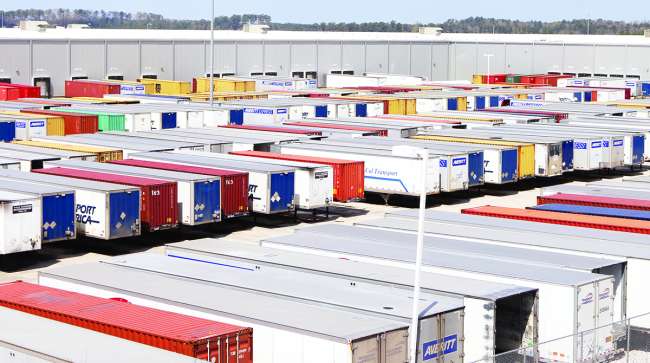Managing Editor, Features and Multimedia
The Trailer’s Turn in the Tech Spotlight

It’s long been the case in our industry that trailers play second fiddle to the increasingly high-tech tractors that pull them. When trucking companies plan their equipment replacement cycles, they’ll typically start by looking at their power units before turning their attention to their trailer fleet. And in most cases, the tractor also receives the lion’s share of investment in onboard technology, especially in light of the government mandated rollout of electronic logging devices.

Clevenger
As a result, fleets traditionally have had less visibility to the status of their trailers, which spend much of their time sitting in logistics yards and at customer sites, sometimes functioning as mobile warehouses.
But times are changing.
When it comes to fleet tracking and business intelligence, the trailer is quickly moving to the front of the line.
Basic trailer tracking has existed for many years, of course, but it began as simple GPS location reporting.
In recent years, however, the Internet of Things has come to life in trucking — both on the tractor and the trailer.
Today, many trailers have been outfitted with onboard sensors that track whether it is loaded or unloaded and report when the trailer door opens and when the temperature inside changes, just to mention a few examples.
Trailer-monitoring systems also are connecting with sensors that monitor tire pressure and the status of various components on the trailer.
And cargo-monitoring capabilities can even extend to specific pallets.
In fact, you’d be hard-pressed to find an industry where IoT holds more potential to identify and resolve inefficiencies than in transportation.
A growing number of fleets are utilizing this real-time tracking information to meet tighter delivery windows within the constraints of driver hours-of-service limits while navigating traffic congestion and delays.
A big part of that effort comes down to improving trailer utilization and addressing detention time at shippers’ and receivers’ facilities, while also addressing maintenance concerns before they become more serious problems.
Suppliers of trailer-tracking technology have introduced a variety of tools to assist fleets as they take steps to streamline their operations.
These vendors are offering data analytics and reporting to help fleet managers better understand the information captured by the expanding array of sensors on their trailers.
Established trailer-tracking suppliers have upgraded their platforms in recent years, while several new players have jumped into this market with products of their own, ratcheting up the level of competition in this sector.
This growing focus on trailer intelligence will only continue in the years ahead as fleets search for ways to reduce waste and meet shippers’ increasing demands for higher service levels and more information about their freight.
And that means the trailer will be getting plenty of time in the technology spotlight.




